 |
||
|
||
| ||
Having analyzed technical characteristics of dual core processors from Intel, we drew a conclusion that their performance must be approximately on the level with the performance of an SMP system based on two Xeon processors with similar characteristics (bus bandwidth, core clock, L2 Cache size). But even the soundest hypothesis in terms of logics and common sense is nothing more than a hypothesis, if it's not supported by experiments. That's why we decided to carry out this experiment. The Pentium XE 840 flagship is challenged by processors with similar parameters: a couple of Xeon 3.2 GHz processors on Nocona core (they are actually rigorously analogous to Pentium XE 840, the only difference is that they are "split" into two separate CPUs) and a couple of Xeon 3.2 GHz processors on Irwindale core (theoretically, this couple should be faster than Pentium XE 840 due to 2MB L2 Cache in each CPU). But the experiment is not 100% pure due to objective reasons: desktop chipsets for Intel dual core processors officially don't support Xeon processors, so we used a different platform for their testing: based on Intel E7525 chipset for workstations. That's actually the main intrigue of this test: will the platform for workstations (like in servers, the main emphasis is laid on reliability here rather than on performance) be able to compete with the fast desktop platform as an equal? We had some doubts about it even before the tests (see our comments to testbed configurations), however only the tests themselves resolved this issue completely... TestingTestbed configurations
We'd like to point out that the dual platform based on Intel Xeon uses a motherboard on Intel E7525 chipset. This chipset supports DDR2-400 memory only, and we used Registered DDR2 modules with ECC support, recommended by Intel. Of course, it must have had an effect on the performance of the Xeon based system, because the Pentium eXtreme Edition 840 has been tested with regular (non-ECC, non-Registered) modules, DDR2-533 at that. However, it's the E7525 that Intel currently recommends for dual processor workstations based on Xeon with Nocona and Irwindale cores. That's why the performance you'll see on the diagrams with test results is exactly what you'll get in practice, if you are going to choose a workstation on dual Xeon today. Test resultsDiagrams with all test results (65 all in all) are published on a separate web page — without comments, just as is. The article provides only summary diagrams that calculate the results of entire test groups into average scores. This approach appeases curiosity of the most inquisitive readers, who are against cutting down the number of test results published in our articles, and still makes the article less motley and graphics-intense. SPECapc for 3ds max 6 + 3ds max 7.03ds max 7 demonstrates almost complete indifference to the multiprocessing type and cache size: Xeon Irwindale based testbed is practically no faster than the Pentium XE 840. The Xeon Nocona based testbed lags behind all the others only by no more than 3%, which is irrelevant. Maya 6.5The Pentium XE shoots forward in Maya, both in the SPEC test (not much, though) and in the rendering test (noticeably). By the way, pay your attention: disabled Hyper-Threading results in insignificant performance increase in the SPEC test in all the three cases. It's not that serious to recommend this method to increase performance, but the tendency is obvious... Lightwave 8.2, renderingApproximate parity of all systems, with Hyper-Threading enabled or disabled. But this technology definitely has a positive effect... SPECapc for SolidWorks 2003The situation resembles SPEC for Maya: the dual core processor is the fastest. Compared to Irwindale, its advantage is not very high. But the Pentium XE 840 should be compared to a couple of Xeon Nocona processors in the first place, as Irwindale with a larger L2 Cache size is at advantage. Adobe Photoshop CS (8)...The dual core processor defeats, even if not so noticeably, both Xeon CPUs again... Adobe Acrobat 6.0It's approximate parity here, but disabled Hyper-Threading for some unknown reason has more effect on the Pentium XE and the Xeon Irwindale, and almost no effect on the Xeon Nocona. All-purpose data compression (archiving)That's the way! It's well known that archivers are critical to memory performance and such factors as Registered ECC, DDR2-400, and a tad worse timings (3-3-3-10 in Xeon versus 3-3-3-8 in case of Pentium XE) resulted in an impressive victory of the dual core processor in this test. Multimedia lossy compression (MP3/MPEG2-4)Multimedia codecs have demonstrated once again that they are generally indifferent to memory performance as well as to a super large (2MB) cache. CPU RightMark 2004BThere is some difference, but it's actually within the mark of the inevitable measurement error... 3D games and graphics visualization
|
The games as well as SPEC viewperf have demonstrated their dependence on memory operation efficiency (have a look at the archiving test results, all your doubts will disappear). As always, the dual systems are slightly outperformed by the dual core system. The breakaway is not large, but it's still a defeat.
In case of disabled Hyper-Threading, the Pentium XE has significantly outperformed the Xeon Irwindale as well as the Xeon Nocona (a dark brown line versus dark green and dark blue ones) from the very beginning almost to the end due to a higher memory operation speed. However, it is still outperformed, when the number of background processes reaches its maximum. When Hyper-Threading is enabled, the Xeon Irwindale outperforms Nocona with two background processes (the large cache is probably still "sufficient"), but this advantage comes to naught with three background processes. On the whole, the Pentium XE 840 is the best, it's only slightly outperformed by the other two systems with sterling SMP in the heaviest test.
The overall bottom line is naturally determined, it could have been forecast even before the tests: performance of the dual core Pentium XE and two Xeon Nocona processors with the same core clocks is approximately identical. However, our platform (recommended by Intel for the new dual Xeon) based on the E7525 chipset, which allows only Registered ECC DDR2-400 modules, has caused quite a natural defeat of the SMP systems to the dual core Pentium eXtreme Edition in all tests, critical to the speed of memory operations. The conclusion is obvious: if you need high performance — dual core processors on Intel's platform are more preferable. The reason is not in the CPU performance differences, it's because you can use this fast desktop platform (i955X). If you need reliability (Registered ECC memory) and server functions (PCI-X support), you will have to pay for them. The price will include lower performance in some software classes that are critical to the memory system performance.
Funny, theoretically all the three processors should be satisfied with DDR2-400, as the total bandwidth of a dual-channel memory controller in this case equals to that of the FSB. That's why it's only natural to assume that what we see is not the advantage of DDR2-533 over DDR2-400, but rather the effect of Registered ECC modules. However, this article is devoted to the analysis of real performance in real applications. So the i955X vs. E7525 comparison of memory performance in low-level tests should be published in a separate article...
Write a comment below. No registration needed!
|
Article navigation: |
| blog comments powered by Disqus |
| Most Popular Reviews | More RSS |
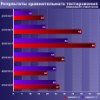 |
Comparing old, cheap solutions from AMD with new, budget offerings from Intel.
February 1, 2013 · Processor Roundups |
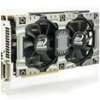 |
Inno3D GeForce GTX 670 iChill, Inno3D GeForce GTX 660 Ti Graphics Cards A couple of mid-range adapters with original cooling systems.
January 30, 2013 · Video cards: NVIDIA GPUs |
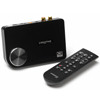 |
Creative Sound Blaster X-Fi Surround 5.1 An external X-Fi solution in tests.
September 9, 2008 · Sound Cards |
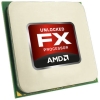 |
The first worthwhile Piledriver CPU.
September 11, 2012 · Processors: AMD |
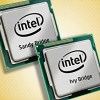 |
Consumed Power, Energy Consumption: Ivy Bridge vs. Sandy Bridge Trying out the new method.
September 18, 2012 · Processors: Intel |
| Latest Reviews | More RSS |
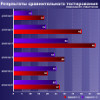 |
Retested all graphics cards with the new drivers.
Oct 18, 2013 · 3Digests
|
 |
Added new benchmarks: BioShock Infinite and Metro: Last Light.
Sep 06, 2013 · 3Digests
|
 |
Added the test results of NVIDIA GeForce GTX 760 and AMD Radeon HD 7730.
Aug 05, 2013 · 3Digests
|
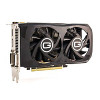 |
Gainward GeForce GTX 650 Ti BOOST 2GB Golden Sample Graphics Card An excellent hybrid of GeForce GTX 650 Ti and GeForce GTX 660.
Jun 24, 2013 · Video cards: NVIDIA GPUs
|
 |
Added the test results of NVIDIA GeForce GTX 770/780.
Jun 03, 2013 · 3Digests
|
| Latest News | More RSS |
Platform · Video · Multimedia · Mobile · Other || About us & Privacy policy · Twitter · Facebook
Copyright © Byrds Research & Publishing, Ltd., 1997–2011. All rights reserved.